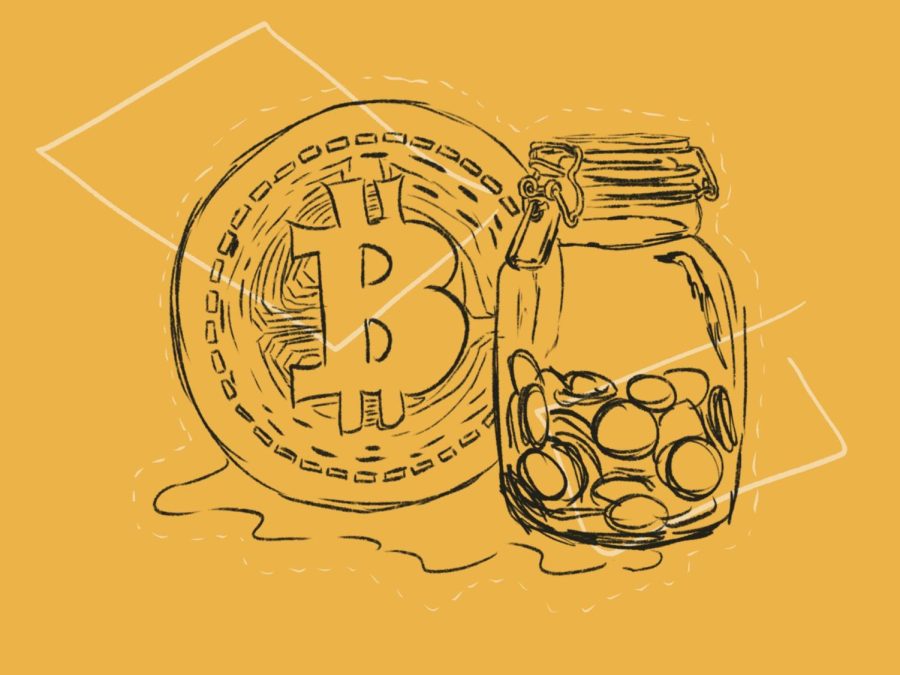Opinion: Crypto is the future
As Russia continues to push into Ukraine, economic punishments, in the form of sanctions, have become the main focus of most western nations. Over the past few weeks, the United States has continually announced new limitations on Russian banks and its ultra-wealthy.
While tensions rise across the world and economies waver, one market is used to the uncertainty — cryptocurrency. I have spent the past two years researching, buying, trading and selling various crypto coins.
As I have actively become involved with crypto, I increasingly sought arguments theorizing the future of cryptocurrency.
Recently, I ran across an article published in The New York Times by Paul Krugman, titled “Transaction Costs and Tethers: Why I’m a Crypto Skeptic.”
Krugman outlined two significant factors that he saw as explicit and intrinsic reasons as to why cryptocurrency will never become more than a device of the black market: how expensive it is to use and how its value is purely speculative. Krugman believes that currencies should innovate, bring change and make something easier or more efficient — he argues that crypto does not do any of this.
Taking a proactive perspective to Krugman’s criticisms, I believe that cryptocurrency has the opportunity to change how the financial market around the world is structured. The current financial makeup of the crypto market is massive and the technology encompassing crypto is new but rapidly innovating.
The market size of crypto is enormous and has been growing rapidly for the past decade, showing no sign of slowing down. The 2021 Global Financial Stability Report published by the International Monetary Fund made cryptocurrency the main focus of their October update.
In the report, they detailed that, in 2021 alone, the market capitalization of cryptocurrency reached $2.5 trillion. This testifies to the emerging significance of cryptocurrency, as money brings power. With a rapidly growing and developing market capitalization, more people are parting with their money in hopes of speculating with crypto.
As more people pour money into assets, companies that act as markets for these assets get wealthier. These companies are presented with two options: invest in their business, or take the money and run.
Over the past two years, we have seen significant reinvestments into tracking increasing demand and upgrading these interfaces from companies like Coinbase or Bittrex. Reinvestments are an effective way of gauging innovation within a specific market. The more a company invests in itself and its products, the more likely they are to make moves in improving and sustaining that market.
Innovation is necessary for all markets. However, it is especially important for crypto because these digital assets currently suffer from the fatal flaw of having no reasonable use as a currency. Krugman pointed out that crypto lacks a few key components that realistic currencies must have: the ability to tether its value to something stable, a cheap way to handle transactions and a purpose.
I believe that crypto’s purpose will come with the other two. More research, more use and more innovation are what will bring crypto up to speed and eventually surpass our modern-day currencies in both practicality and convenience.
The Crypto Council for Innovation has been doing exactly that. Backed by significant powers in the crypto industry, the Crypto Council for Innovation has been doing research into ways to make crypto a more valuable asset.
Currently, crypto is used as a speculative asset, solely being bought to trade and sell; rarely is crypto used for buying a cup of coffee. The Crypto Council is working to change that, by moving away from government regulation and looking to make crypto more stable. They have been working to implement measures and safeguards that prevent the use of crypto for illicit and illegal behavior.
All around, with significant funding and strong support from some of the most powerful names in crypto, The Crypto Council is the main hub and the best hope for crypto’s innovation.
I know that crypto is a very complicated concept with a lot of variation between each coin. I also know creating an entire currency with no connection to any government institution is conjectural; however, crypto has made it this far and has garnered more support than ever expected.
I do not know the specifics of the intricate technology that allows cryptocurrency to function in the way it does. I may be entirely wrong — crypto could have run its course and will fall into the trap that Krugman described, spending the rest of its existence as a device of the black market. Although I doubt that, things have a way of working out.
Overall, I think crypto is currently very powerful and has changed the world. Like all things, to maintain this momentum, crypto must innovate. For its success, cryptocurrency must keep true to its name and extend beyond the territory of just being an asset.
So while the Russian ruble and economy continue to crumble, crypto has the opportunity to learn from the weaknesses and build upon the strengths of these stable, tethered currencies — possibly securing itself a more secure and promising future.












